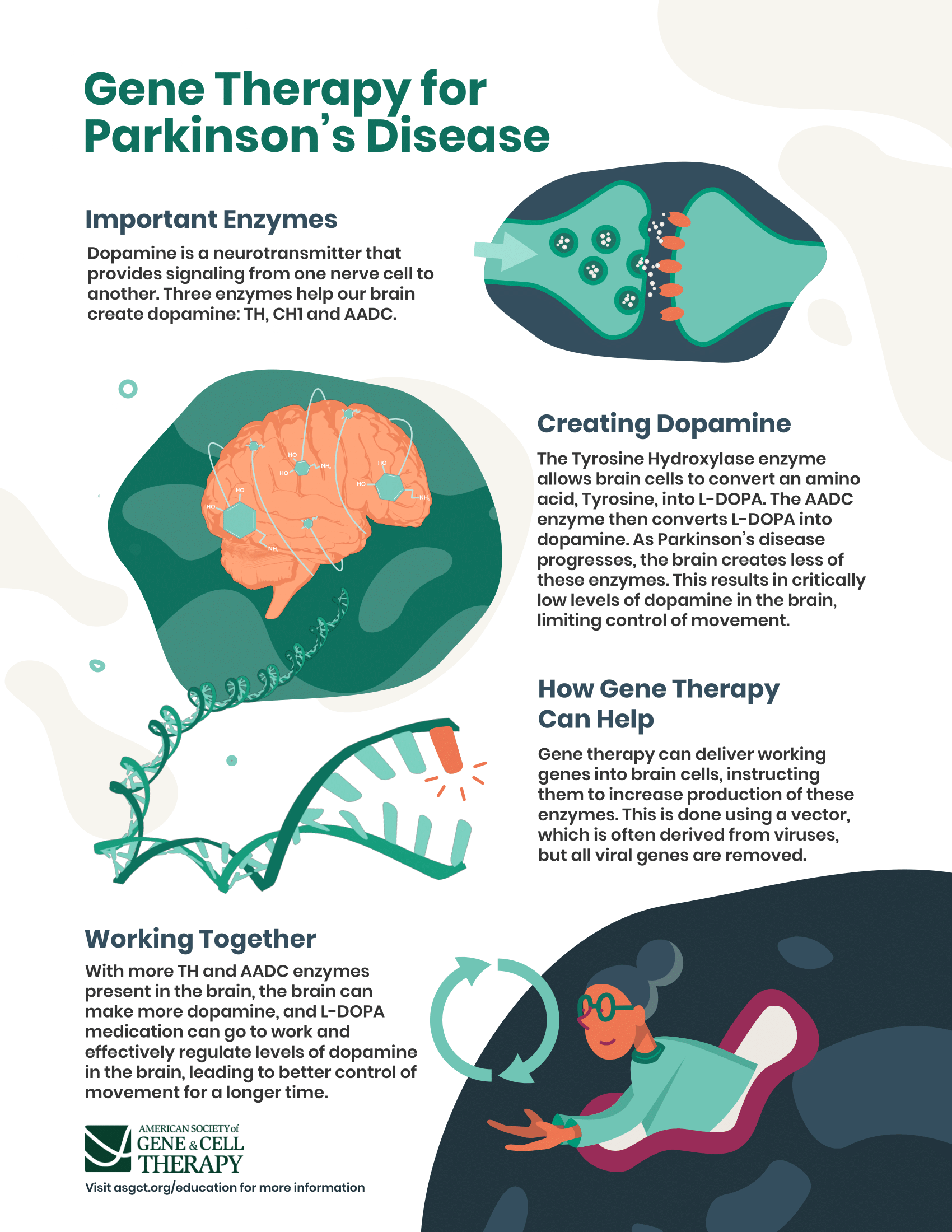Does Mark Levin Have Parkinson's Disease? The Truth Behind The Speculation
Mark Levin, one of America's most prominent conservative voices, has been at the center of attention for decades. But lately, questions have arisen about his health, specifically whether he has Parkinson's disease. This speculation has sparked conversations across the political and medical spheres. So, what's the deal? Does Mark Levin have Parkinson's disease, or is this just another case of misinformation flying around? Let's dive deep into the facts, the rumors, and the truth behind it all.
You might have heard whispers in the media or seen posts on social media questioning Mark Levin's health. As someone who's been in the public eye for so long, it's no surprise that every move he makes is under scrutiny. But before we jump to conclusions, let's take a step back and understand the context. Is Parkinson's disease really the issue here, or is there more to the story?
This article aims to provide clarity, separating fact from fiction. We'll explore Mark Levin's background, his symptoms (if any), and the medical facts surrounding Parkinson's disease. By the end of this piece, you'll have a better understanding of whether these claims hold water or if they're just baseless rumors. Let's get started!
- Erin Perrine Age The Untold Story Behind The Inspiring Life
- David Jeremiah Wife Age The Inside Story Yoursquove Been Waiting For
Table of Contents
- Mark Levin: A Quick Biography
- What Is Parkinson's Disease?
- Symptoms of Parkinson's Disease
- How Is Parkinson's Diagnosed?
- Mark Levin's Health: The Facts
- The Role of Media in Health Speculation
- Impact on Levin's Career
- Busting Myths About Parkinson's Disease
- Support for Those With Parkinson's
- Conclusion: What Does It All Mean?
Mark Levin: A Quick Biography
Before we delve into the health speculation, let's take a moment to understand who Mark Levin is. Born on September 14, 1959, in Pittsburg, Pennsylvania, Levin has carved out a name for himself as a prominent radio host, author, and conservative commentator. He's the voice behind "The Mark Levin Show," which airs on hundreds of stations nationwide, making him one of the most listened-to personalities in talk radio.
Beyond his radio career, Levin has authored several best-selling books, including "Liberty and Tyranny" and "Unfreedom of the Press." His work often focuses on conservative principles, constitutional issues, and the erosion of individual freedoms. Levin's influence extends beyond just his media presence; he's also been a key figure in shaping modern conservative thought.
Mark Levin's Data
| Full Name | Mark Richard Levin |
|---|---|
| Birthdate | September 14, 1959 |
| Profession | Radio Host, Author, Commentator |
| Known For | "The Mark Levin Show," Conservative Advocacy |
What Is Parkinson's Disease?
Parkinson's disease is a neurodegenerative disorder that primarily affects movement. It develops gradually, often starting with a barely noticeable tremor in just one hand. But don't let the tremor fool ya; Parkinson's is much more than that. It impacts the brain's ability to produce dopamine, a neurotransmitter crucial for smooth muscle movement.
- What Car Does Barron Trump Drive Unveiling The Wheels Of Presidential Legacy
- Maligoshik Onlyfans Leaks The Untold Story You Need To Know
According to the Parkinson's Foundation, about 60,000 Americans are diagnosed with Parkinson's each year, and more than 10 million people worldwide are living with the condition. It's not just about tremors; symptoms can vary widely from person to person, making diagnosis tricky. Let's break it down further.
Key Characteristics of Parkinson's
- Tremors: Involuntary shaking, often starting in the hands.
- Bradykinesia: Slowness of movement.
- Rigidity: Stiffness in the muscles.
- Postural Instability: Difficulty with balance.
Symptoms of Parkinson's Disease
Now, let's talk about the symptoms. Parkinson's isn't just about tremors, though they're one of the most visible signs. Non-motor symptoms can be just as debilitating, affecting everything from sleep to mood. Here's a closer look at what people with Parkinson's might experience:
Motor Symptoms
- Tremors: These are the hallmark of Parkinson's, often starting in the fingers or hands.
- Slowness: Movements become slower, making everyday tasks more challenging.
- Stiffness: Muscles can become rigid, limiting range of motion.
Non-Motor Symptoms
- Sleep Disturbances: Restless nights are common for those with Parkinson's.
- Mood Changes: Depression and anxiety frequently accompany the disease.
- Cognitive Issues: Some people experience memory problems or difficulty concentrating.
It's important to note that not everyone will experience all these symptoms, and severity can vary widely. This variability makes Parkinson's a complex condition to diagnose and treat.
How Is Parkinson's Diagnosed?
Diagnosing Parkinson's isn't as straightforward as running a blood test. In fact, there's no specific test to definitively diagnose the disease. Instead, doctors rely on a combination of medical history, physical examination, and observation of symptoms. Here's how it typically works:
Steps in Diagnosing Parkinson's
- Medical History: Doctors will ask about symptoms, family history, and other relevant factors.
- Physical Examination: They'll look for signs like tremors, stiffness, and slowness of movement.
- Observation: Over time, doctors may monitor symptoms to see how they progress.
While imaging tests like MRIs or PET scans can help rule out other conditions, they aren't conclusive for Parkinson's. Diagnosis often comes down to a process of elimination and careful observation over time.
Mark Levin's Health: The Facts
So, what about Mark Levin? Has he been diagnosed with Parkinson's disease? As of now, there's no official confirmation or statement from Levin or his representatives regarding such a diagnosis. Speculation often arises from public appearances where he might exhibit certain behaviors or mannerisms that some interpret as symptoms.
It's crucial to remember that not every tremor or movement issue is Parkinson's. Many conditions can cause similar symptoms, and stress, fatigue, or even side effects from medication can play a role. Without a definitive diagnosis from a medical professional, it's irresponsible to jump to conclusions.
Why Speculation Arises
- Public Appearances: Levin's visibility in media makes every move he makes subject to scrutiny.
- Misinformation: Social media can amplify rumors without proper verification.
- Human Nature: People are naturally curious, especially when it comes to public figures.
The Role of Media in Health Speculation
The media plays a significant role in shaping public perception, and health speculation about celebrities is no exception. While some outlets strive for accuracy, others prioritize clicks and sensational headlines. This can lead to misinformation spreading like wildfire.
When it comes to Mark Levin and Parkinson's disease, it's essential to approach news with a critical eye. Verify sources, look for official statements, and be wary of articles that seem too eager to sensationalize. Responsible journalism should prioritize facts over drama.
Impact on Levin's Career
If Mark Levin were to be diagnosed with Parkinson's, what would that mean for his career? Parkinson's doesn't have to be a career-ending diagnosis. Many people with the condition continue to work and lead fulfilling lives. However, it might require adjustments, both in how he presents himself and how he manages his workload.
Levin's influence extends far beyond his physical presence. His ideas, writings, and advocacy work can continue to thrive regardless of any health challenges he might face. The key is adaptability and support from those around him.
Busting Myths About Parkinson's Disease
There are plenty of misconceptions surrounding Parkinson's disease. Let's clear up a few of the most common ones:
Myth vs. Reality
- Myth: Parkinson's only affects the elderly. Reality: While it's more common in older adults, it can occur at any age.
- Myth: Tremors are the only symptom. Reality: Non-motor symptoms like mood changes and cognitive issues are also prevalent.
- Myth: There's no treatment. Reality: While there's no cure, treatments can significantly improve quality of life.
Understanding these myths can help reduce stigma and improve support for those living with Parkinson's.
Support for Those With Parkinson's
If you or someone you know is living with Parkinson's, there's plenty of support available. Organizations like the Parkinson's Foundation and the Michael J. Fox Foundation offer resources, research updates, and community connections. It's crucial to remember that you're not alone.
Additionally, advancements in treatment and technology continue to improve outcomes for those with Parkinson's. From medications to surgical options like deep brain stimulation, there are tools to help manage symptoms and maintain a good quality of life.
Conclusion: What Does It All Mean?
In conclusion, the question of whether Mark Levin has Parkinson's disease remains unanswered without official confirmation. What we do know is that Parkinson's is a complex condition with varied symptoms and impacts. It's essential to approach health speculation with caution and rely on verified information.
If you're concerned about your own health or that of someone you love, don't hesitate to consult a medical professional. Early diagnosis and treatment can make a significant difference. And remember, whether it's Mark Levin or anyone else, respecting privacy and dignity is paramount.
So, what's next? Share your thoughts in the comments below. Have you or someone you know been affected by Parkinson's? How can we better support those living with this condition? Let's keep the conversation going and work toward a more informed and compassionate world.
- Unblocked Games 76 Your Ultimate Playground For Fun And Adventure
- Alison Neubauer Tim Pool The Ultimate Guide To Their Impactful Journey

Parkinson's Disease Symptoms and Early Warning Signs of PD

Parkinson's ASGCT American Society of Gene & Cell Therapy

The 11 Early Signs of Parkinson’s Disease GoodRx